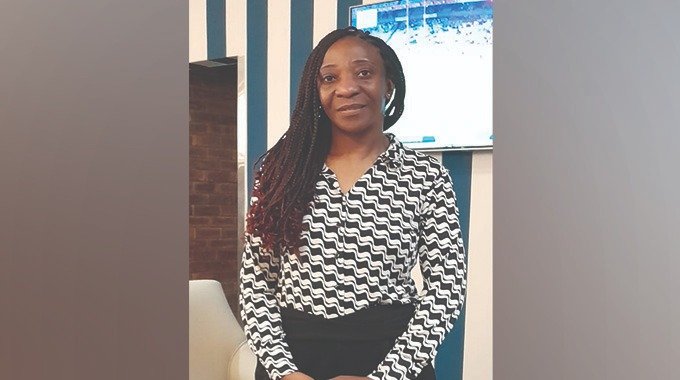In universities across the globe, food insecurity quietly chips away at student potential, but few scholars have illuminated this crisis with the clarity and urgency of Dr Stella C Sabi A pioneering researcher from the University of KwaZulu-Natal, Dr Sabi has devoted her academic career to uncovering the complex and often hidden relationship between inadequate access to nutritious food and the struggle to excel in higher education Her research is not simply academic observation; it is a rallying cry for institutional change.One of the earliest hallmarks of Dr Sabi’s work is her comprehensive review, investigating perceptions of food insecurity complexities in South African higher learning institutions, which was presented in 2015.In it, she reveals a striking dissonance between national statistics, 20% of households reported food insecurity in 2012, and the reality at UKZN, where more than half of the student population came from economically disadvantaged backgrounds This disparity paints a stark picture: for many South African students, university life is shadowed not just by the pressures of academics but by the gnawing persistence of hunger.Dr Sabi anchors her argument in the timeless framework of Maslow’s hierarchy of needs, pointing out that no student can achieve their intellectual potential if their basic physiological needs, like access to adequate food, remain unmet Yet her research shows that most institutions of higher learning have no formal policies to ensure these foundational needs are addressed Students, as her findings reveal, are often left to survive on insufficient and nutritionally poor diets Without systemic support, hunger becomes not just a health issue but a profound academic handicap.What makes Dr Sabi’s work uniquely powerful is her commitment to amplifying the voices of the students themselves She draws out not only the physical implications of food insecurity but also its deep psychological toll, anxiety, depression, and social isolation Students spoke of the stigma associated with seeking help, of being labeled as “hungry” or “poor,” and of the quiet shame that keeps them from reaching out These are not statistics in her papers; they are human stories that reveal the emotional cost of pursuing education while fighting hunger.Her work does not exist in isolation Other studies in the field have echoed her concerns, such as research showing that nearly a quarter of first-year students at a major South African university experienced food insecurity with hunger, and that those affected were almost twice as likely to fall behind academically as their peers While these findings are not Dr Sabi’s own, they reflect the academic ecosystem her research has helped ignore that treats student hunger not as an unfortunate side effect of poverty, but as a measurable and solvable barrier to success.Perhaps the most urgent and newsworthy contribution of Dr Sabi’s research is the policy vacuum it exposes She shows us a higher education landscape where student welfare initiatives are often piecemeal, meal vouchers here, informal food banks there, but lacking the cohesive, systemic frameworks necessary for lasting change In doing so, she reframes the conversation from charity to policy, calling on universities and governments to treat food security as a core pillar of academic support rather than an optional act of goodwill.The significance of her work cannot be overstated Dr Sabi has shifted the narrative from one of passive observation to active responsibility Her research argues that hunger in higher education is not just a symptom of inequality, it is an academic emergency that demands the same level of strategic intervention as curriculum design, infrastructure development, or technological investment Her findings resonate far beyond the lecture halls of KwaZulu-Natal, sparking conversations that could redefine student support systems across the continent.In an age where higher education is often reduced to metrics like tuition fees, rankings, and publication counts, Dr Stella C Sabi’s work reminds us of a fundamental truth: hungry minds cannot thrive She compels us to see that food security is not peripheral to education, it is the bedrock on which all academic achievement is built Her research is as much a moral imperative as it is an intellectual contribution, urging institutions to invest in human potential at their very core For every student who graduates because their hunger was addressed, the ripple effects extend into families, communities, and the broader economy.By laying bare the silent crisis of food insecurity in higher education, Dr Sabi has ensured that the conversation will not fade quietly into academic obscurity Instead, it demands space on the desks of policymakers, in the strategies of university administrators, and in public consciousness Her work challenges South Africa, and perhaps the world, to look closely at its campuses and to recognize that the true cost of higher education is not just tuition, it is the meals that make learning possible.Share on FacebookPost on XFollow usSave Originally published on Zimbabwe Herald All Zim News is a central hub for all things Zimbabwean, curating news from across the country so no story is missed Alongside aggregation, our team of nationwide reporters provides real-time, on-the-ground coverage Stay informed and connected — reach us at admin@allzimnews.com . Source: Herald
 Image from Hunger on Campus Confronting the Silent Academic Crisis
Image from Hunger on Campus Confronting the Silent Academic Crisis